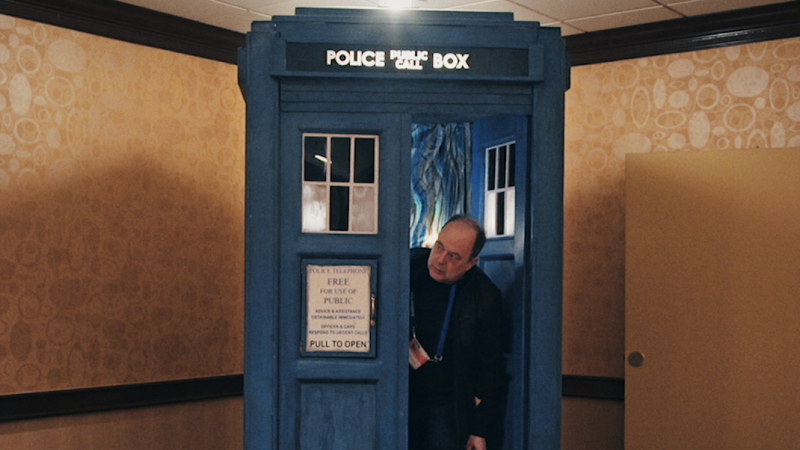Director – Matthew Jacobs, Vanessa Yuille – 2022 – UK – Cert. 12a – 80m
****
Screenwriter Jacobs’ entry into US Dr. Who fan subculture follows his scripting of the 1996 Dr. Who TV movie that was supposed to launch the franchise Stateside but flopped – out in UK cinemas on Thursday, October 27th and Blu-ray, DVD & Digital Download Monday, November 28th
What the hilarious narrative feature Galaxy Quest (Dean Parisot, 1999) did for Star Trek, this heartfelt yet hugely entertaining documentary does for Dr. Who. Matthew Jacobs, whose work includes the screenplay for Paperhouse (Bernard Rose, 1988) and the original story for offbeat Disney cartoon The Emperor’s New Groove (Mark Dindal, 2000), also wrote the script for the US network TV movie Doctor Who (1996) which was supposed to relaunch the BBC franchise in the US, a goal it spectacularly missed when no series proved forthcoming.
In retrospect, Jacobs considers that his script made two major errors in terms of the Doctor Who legacy. One, it recast the hitherto entirely alien Time Lord as half-human, and, two, it allowed him to kiss a member of the opposite sex, something no previous version of the doctor had ever been seen to do. Hardcore US fans who had followed the British series felt betrayed.
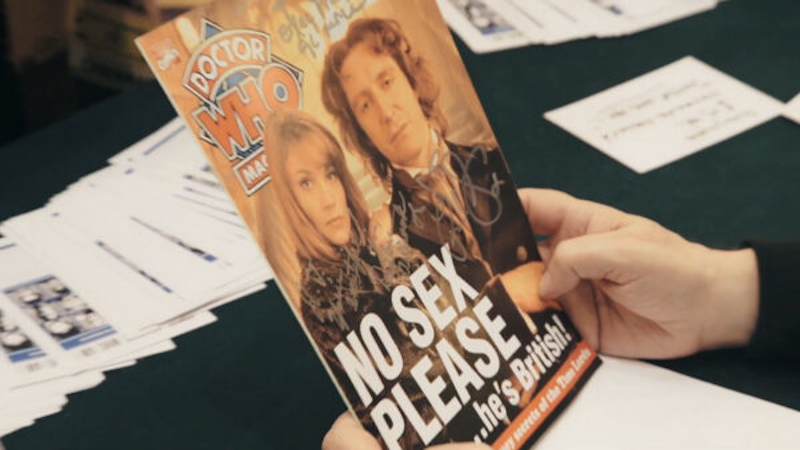
He had a personal connection to the series too: his actor father Anthony Jacobs played Doc. Holliday in the Doctor Who four-part series of the same name. And as a birthday treat, the young Matthew spent a day on the set supplied with headphones during shooting, so he could listen to the director, and a TV monitor before his eyes, so he could see what was going on. He describes this, understandably, as the most exciting day of his childhood.
Fast-forward to 25 years later, and Jacobs has been persuaded to attend Stateside Doctor Who conventions where people pay $15 a signature. He has some trepidation about this, feeling like the villain who helped land the franchise in limbo for several years. However, his motivation lies elsewhere: he is fascinated by the whole concept of fandom, and wants to get to the bottom of what makes fans tick. His background makes him the perfect person to undertake this.
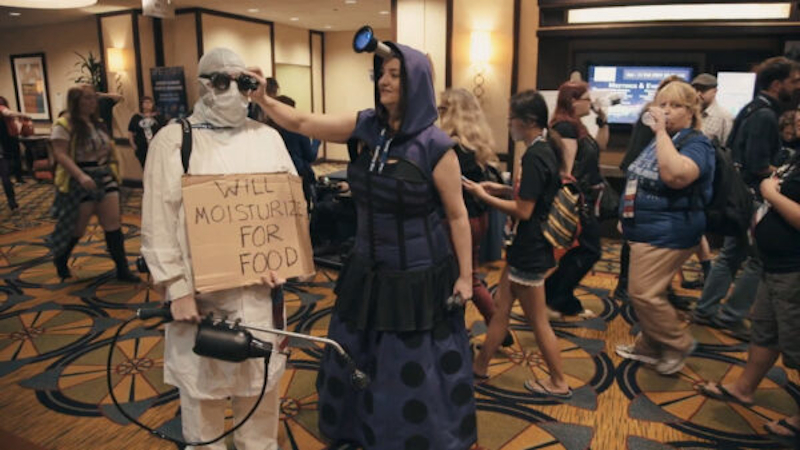
What he discovers, however, is the complete opposite of what he expects: fans are fascinated by the flopped movie – some of them have even seen it – and welcome him with open arms like a long-lost hero or relative. The so-called Whovians may not always agree with his decisions as a writer – “you destroyed my childhood”, says one, “but not to the George Lucas level” – but they are nevertheless delighted for him to be present, to meet and greet him and see what he has to say on various scheduled panels.
Like Jacobs himself, the film embraces fandom, going out of its way to show its peculiar and bizarre rituals. Some of his visits are to conventions, others are to specific Whovians’ homes.
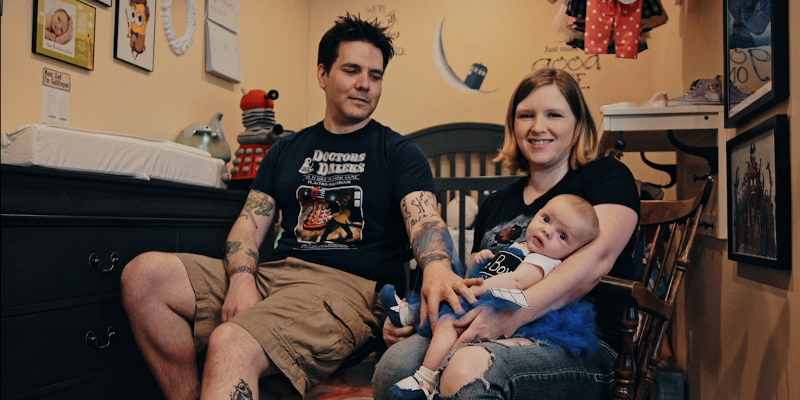
In arresting examples of cosplay, one woman dresses as a Time Fairy, waving orange scarves around to demonstrate how she helps Time Lords to undergo the regeneration process, while another shows off a Dalek helmet and dress.
Tardis Tara drives her full size Tardis from convention to convention. It’s constructed so it van be flat-packed into the trailer pulled by her car and, from the testimony of another fan who helped her set it up and take it down at one convention, it’s a lot of work, a labour of love. A man collects the signatures of the actors who played the Doctor on his arm in the form of tattoos and there’s even an improv comedy group called Doctor Who Live.
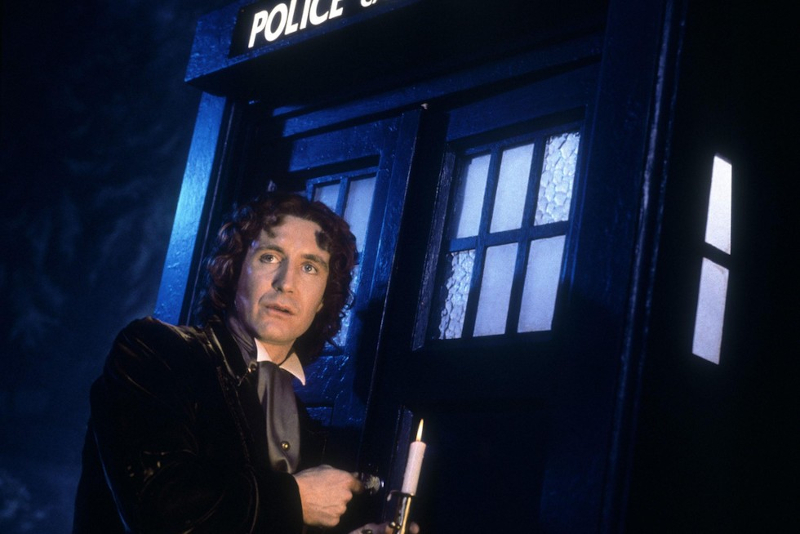
Actors Paul McGann (who portrayed the Doctor in the ill-fated film) and Daphne Ashbrook (the recipient of the infamous onscreen kiss, better known for her recurring role in Star Trek: Deep Space Nine) appear extensively later on, doing the convention gig alongside Jacobs. They seem to be having a good time. Other cast members to put in an appearance include Eric and Eliza Roberts.
It’s Jacobs who’s at the centre of the film though, suggesting that perhaps fandom, its undeniable value as a community of people with a shared interest notwithstanding, is a form of escape from those people’s problems in the real world or possibly even a leap of faith. Yet it can help people through life’s crises; a woman talks about how her love of the TV show ‘pulled her out of her head’ when dealing with grief following the loss of her husband in 2009.
Jacobs talks about his own troubled past – his mother Ann Jameson, who wrote poetry, committed suicide in 1963 while his father, who he worshipped both as an actor and as someone who’d appeared on Doctor Who, wasn’t the best father he could have been.
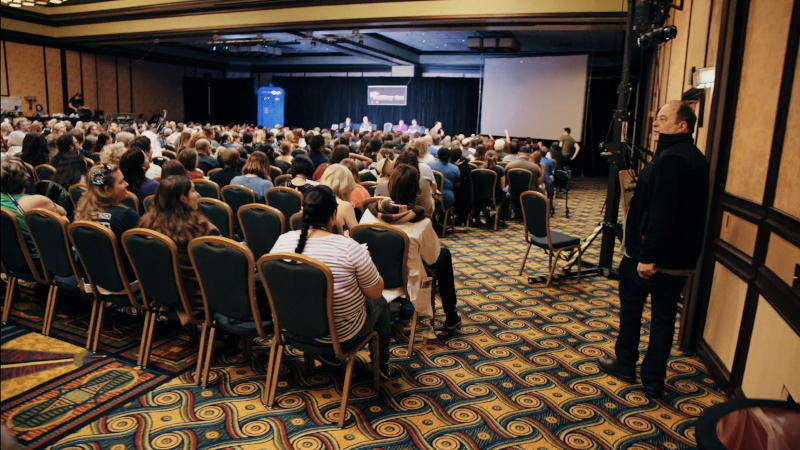
He finds something of great value in the friendships he witnesses and indeed starts to make himself with people within this community. He admits to enjoying the worship he receives, but the element that attracts him appears to go beyond that, as if he’s being welcomed into a large, geographically widespread family.
In the end, far from being a parochial film for Doctor Who fans only, Jacobs and Yuille’s film transcends that world via its fascination with fandom and conventions as a form of community. Running a mere 80 minutes, it packs more in to that short time than many much longer films with far bigger budgets. A film to treasure and an absolute must-see.
Doctor Who Am I is out in cinemas in the UK on Thursday, October 27th and Blu-ray, DVD & Digital Download Monday, 28th November.
See also my much more religious review in Reform magazine.
Trailer:
